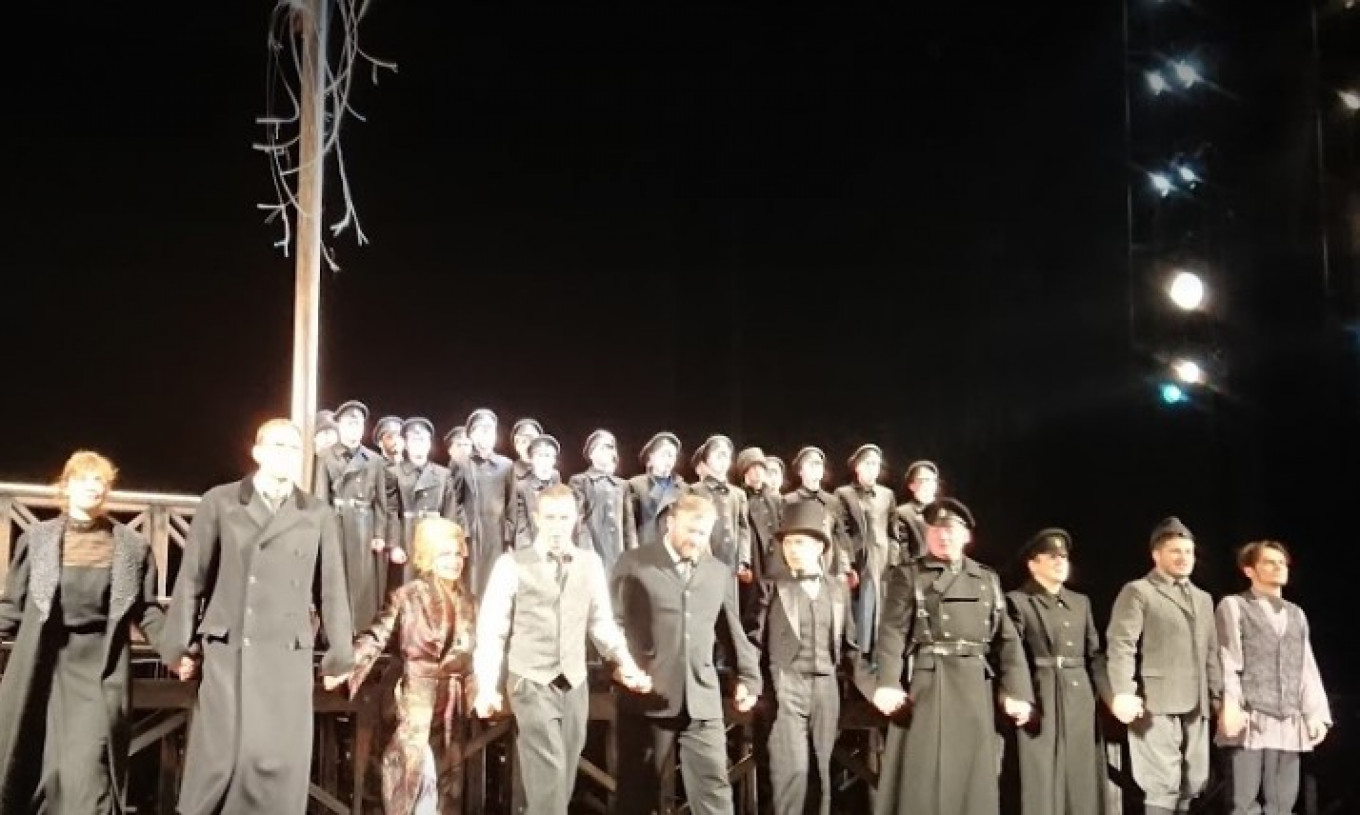Since all over the world people cannot go out to commemorate the end of the war today, cities, countries and organizations have organized a plethora of events online. Here are five events in Russian cultural life — or from Soviet cultural life — that celebrate, mourn, and commemorate the war years.
Roman Vityuk Theater
On May 9 at 4 p.m. in Moscow, the Roman Vityuk Theater is putting on an online premiere in honor of Victory Day. Called “Watchmen of Love,” the name of a famous song by Bulat Okudzhava, the hour-long film conceived and directed by Dmitry Golubev is a “contemplation of the most terrible war in the history of humanity through poetry, frontline letters and favorite songs.” The works performed, song or read will include works by Svetlana Alexievich, Bulat Okudzhava, Olga Berggoltz and many others. You can tune in on the theater’s platforms, Facebook or the theater.
Unknown Berlin May 1945
The Jewish Museum and Tolerance Center is hosting several extraordinary events on a special site called may9.jewish-museum.ru. There you can see photographs published for the first time of Berlin right after the end of the war in the spring and summer of 1945. They were taken by frontline cameraman Ilya Arons and the very young Valery Ginzburg, who went on to be one of the Soviet Union’s greatest film cameramen.
Among the other online events is the very beautiful and moving concert of music by Jewish composers who had been incarcerated in the Theresienstadt camp.
Be sure to wander through the museum’s YouTube channel, which has a wealth of material — much subtitled, like this short film about the poet Osip Mandelshtam.
Moscow Art Theater Speaks
The Moscow Art Theater is marking the day with “Immortal Lines,” an evening of poetry written by men and women who fought in the war and read by the theater’s actors, some of the best in the world. Works by Olga Berggolts, Arseny Tarkovsky, and many others will be read by Alexander Udalov, Irina Arkipova, Roman Titov, Mikhail Kabanov, Tatyana Shalkovskaya, and another dozen actors. The performance begins at 5 p.m. Moscow time, although there will be continuous poetry, songs and other events all afternoon. After a minute of silence at 7 p.m., there will be a concert of wartime songs. You can see it all on the theater’s YouTube channel.

“Ascent” (1977) by Larissa Shepitko
Larissa Shepitko was one of the Soviet Union’s most brilliant filmmakers, who died in a car accident in 1979 after making this film. It is, like “Come and See,” (made by her husband, Elem Klimov) a very difficult film to watch. It tells what seems to be a familiar story: in occupied Belarus, two Soviet partisans are wounded, taken in by a peasant woman with three children, discovered by the Germans and arrested. Under interrogation, one is tortured by reveals nothing. The other reveals what he thinks the collaborationist leader already knows and is saved from execution — which is, in the end, a worse fate. Based on the novel “Sotnikov” by Vasily Bykov, the film is considered one of the finest films of the decade.
The Cuckoo (2002) by Alexander Rogozhkin
This film takes place in September 1944, a few days before Finland, which had been fighting with the Axis Powers after the country had been invaded by the Soviet Union in 1939, switched sides to fight with the Allied Powers. A Finish soldier and a Russian soldier are rescued by Anni, a Saami widow living alone in the forest. The three somehow live together, not knowing each other’s languages, suspicious of each other and yet compelled to help one another and get along. The version below, which is free, does not have subtitles, but you can find it online with English subtitles here for a small fee.

Leave a Reply